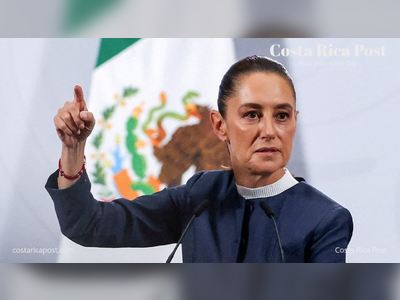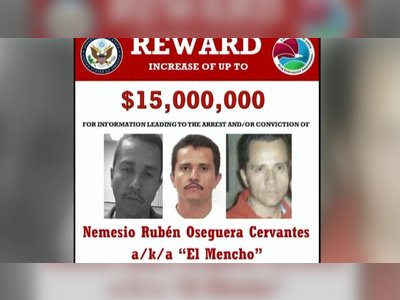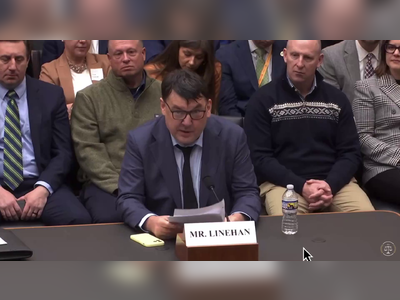Costa Rican Lawmaker Proposes Bold Ban on Seabed Mining: A Pledge to Environmental Integrity
Manuel Morales of the ruling party seeks to align national legislation with international conservation efforts, as the government faces criticism for its environmental policies.
In a decisive move towards reinforcing Costa Rica’s ecological commitments, Manuel Morales, a lawmaker from the ruling Partido Progreso Social Democrático (PPSD), has presented a legislative proposal aiming to outlaw seabed mining within the nation’s maritime territory.
The proposed legislation seeks to bar the government from issuing permits or concessions for the extraction of minerals under the country’s seabed, underscoring a dedication to safeguarding marine ecosystems.
Morales’s initiative goes beyond mere regulatory adjustments, declaring Costa Rica as a marine mining-free territory.
He contends that government support for seabed mining operations would starkly contradict the international strides the nation has made to protect natural ecosystems and combat climate change.
The legislative draft explicitly prohibits permissions related to the establishment or operation of any mining activity targeting the ocean floor, with a comprehensive list of minerals such as gold, silver, copper, cobalt, and others included in the ban.
This proposal comes in light of the administration of President Rodrigo Chaves advocating for a precautionary moratorium on deep-sea mining in international forums.
The Ministry of Foreign Affairs maintains that such a freeze should persist until adequate scientific data is available on the environmental impacts and a robust legal framework is implemented to ensure necessary environmental safeguards.
Morales argues that, “International decisions must be reflected in national legislation.” This perspective aligns with his legislative mission to legislate against activities that could severely disrupt marine habitats, leading to potential ecological degradation, from sediment plumes to the destruction of entire marine communities.
However, the context in which these proposals arise is fraught with political tension.
Morales is also at the forefront of efforts to halt the exploration of fossil fuels in Costa Rica, a country celebrated globally for its green commitments.
Although these initiatives have faced resistance, notably from the Partido Nueva República (PNR), Morales represents a dissenting voice within his government, criticizing the administration’s environmental policy under President Chaves.
Reflecting on a speech in Congress on December 2, Morales openly challenged what he described as the dichotomy between government leaders’ rhetoric at international summits and their domestic environmental priorities.
He argues that proclamations of Costa Rica as a paragon of environmental stewardship are empty without concrete legislative action to embody these ideals at home.
As Costa Rica navigates its environmental legacy, this proposal stands as a pivotal point of reflection on aligning policy with precedent.
It serves not only as a challenge to current political inertia but as a testament to the ongoing global discussion on how nations balance economic ambitions with environmental imperatives.
Through initiatives like Morales’s, Costa Rica seeks to affirm its status as an environmental leader amidst growing global scrutiny.
The proposed legislation seeks to bar the government from issuing permits or concessions for the extraction of minerals under the country’s seabed, underscoring a dedication to safeguarding marine ecosystems.
Morales’s initiative goes beyond mere regulatory adjustments, declaring Costa Rica as a marine mining-free territory.
He contends that government support for seabed mining operations would starkly contradict the international strides the nation has made to protect natural ecosystems and combat climate change.
The legislative draft explicitly prohibits permissions related to the establishment or operation of any mining activity targeting the ocean floor, with a comprehensive list of minerals such as gold, silver, copper, cobalt, and others included in the ban.
This proposal comes in light of the administration of President Rodrigo Chaves advocating for a precautionary moratorium on deep-sea mining in international forums.
The Ministry of Foreign Affairs maintains that such a freeze should persist until adequate scientific data is available on the environmental impacts and a robust legal framework is implemented to ensure necessary environmental safeguards.
Morales argues that, “International decisions must be reflected in national legislation.” This perspective aligns with his legislative mission to legislate against activities that could severely disrupt marine habitats, leading to potential ecological degradation, from sediment plumes to the destruction of entire marine communities.
However, the context in which these proposals arise is fraught with political tension.
Morales is also at the forefront of efforts to halt the exploration of fossil fuels in Costa Rica, a country celebrated globally for its green commitments.
Although these initiatives have faced resistance, notably from the Partido Nueva República (PNR), Morales represents a dissenting voice within his government, criticizing the administration’s environmental policy under President Chaves.
Reflecting on a speech in Congress on December 2, Morales openly challenged what he described as the dichotomy between government leaders’ rhetoric at international summits and their domestic environmental priorities.
He argues that proclamations of Costa Rica as a paragon of environmental stewardship are empty without concrete legislative action to embody these ideals at home.
As Costa Rica navigates its environmental legacy, this proposal stands as a pivotal point of reflection on aligning policy with precedent.
It serves not only as a challenge to current political inertia but as a testament to the ongoing global discussion on how nations balance economic ambitions with environmental imperatives.
Through initiatives like Morales’s, Costa Rica seeks to affirm its status as an environmental leader amidst growing global scrutiny.











